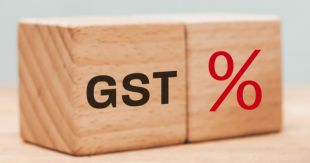GST Articles
Detailed Note on various notifications on Rate in Jal Jeevan Mission
CA Prashant Gupta 31 July 2025 at 08:36Track key GST rate changes on construction services under CGST, covering major notifications, exemptions for government bodies, and the rollback of reduced rates from July 2022.
GST Implications on Diagnostic Services
CA Amit Harkhani 29 July 2025 at 14:09Understand how GST applies to diagnostic services in India, with insights into exemption rules, key definitions, and clarifications from official GST notifications and circulars.
How Smart Tally Practices Can Save You From GST Delays and Fines?
vishal dharmadhikari 23 July 2025 at 14:04IntroductionIn today's digital-first business world, timely and accurate GST filing is essential. Yet, many businesses still find themselves paying penalties no..
SBI Warns: Aggressive GST Scrutiny May Push Small Businesses Back to Cash
Mitali 23 July 2025 at 12:29Tax scrutiny of UPI payments could reverse GST formalisation gains, SBI cautions in a new report.
Appeal Time Gone? Madras HC Allows GST Appeal Despite Delay!
CA Harshit Goyal 23 July 2025 at 08:42Madras High Court allows delayed GST appeal in Rohini Hotels v. Asst. Commissioner due to mismatch in assessment and summary orders, reinforcing natural justice and departmental accountability.
Your UPI, Your GST Trap? Dept Uses Transaction Data for Compliance!
Rashmi 22 July 2025 at 08:47The Karnataka State GST Department has clarified that GST registration is mandatory for all traders whose aggregate turnover exceeds the threshold limit, irrespective of the mode of payment - UPI, cash, bank transfer or others.
Cross-State ITC Transfer Allowed Post-Amalgamation: A Landmark GST Verdict
Srishti 21 July 2025 at 08:42In a landmark ruling, the Bombay High Court allowed cross-state transfer of Input Tax Credit (ITC) post-amalgamation, stating there’s no legal bar under GST law. The court directed GSTN and the GST Council to fix technical glitches and enable seamless credit flow across states.
Madras High Court Sets Aside GST Assessment Order Over Improper Service of SCN
CA Harshit Goyal 21 July 2025 at 08:38The Madras High Court has ruled that merely uploading a show cause notice (SCN) on the GST portal without serving it through other prescribed modes is insufficient. The court set aside the assessment order due to lack of proper service.
Is GST Mandatory for Private Limited & LLP Companies? The Truth No One Tells You!
CA Ruby Bansal 18 July 2025 at 11:35While some banks may insist on a GST number for opening a current account, GST registration is not mandatory at the start for LLPs, Private Limited or Limited companies unless turnover exceeds prescribed thresholds.
Assessments under GST
CA Prateek 18 July 2025 at 08:39This article aims to provide a simple and practical understanding of the different types of assessments under GST. This article will cover the types of assessments, their legal provisions and the situations in which they apply.
Popular Articles
- TDS Rate Chart For Tax Year 2026-27: With Revised Section Codes in Challans
- Interest Computation Changes under GST (Effective from January 2026)
- Revised Return Due Date Extension
- Tax Deduction Rules for Employee Contributions From April 2026
- TDS and TCS: The New Shields and Arrows of the Taxpayer
- Tax Calculation Slabs For FY 2025-26 (AY 26-27)
- Comprehensive Guide to Statutory, Tax & Regulatory Compliances for Hotels
- Section 144C Time-Limit Finally Clarified: No More Litigation on Draft vs Final Assessment Deadlines
Trending Online Classes
-
DT & Audit (Exam Oriented Fastrack Batch) - For May 26 Exams and onwards Full English
 CA Bhanwar Borana & CA Shubham Keswani
CA Bhanwar Borana & CA Shubham Keswani -
IDT LIVE Exam Oriented Batch | May 2026, Sept 2026 & Jan 2027
 CA Arpita Tulsyan
CA Arpita Tulsyan













 CAclubindia
CAclubindia
